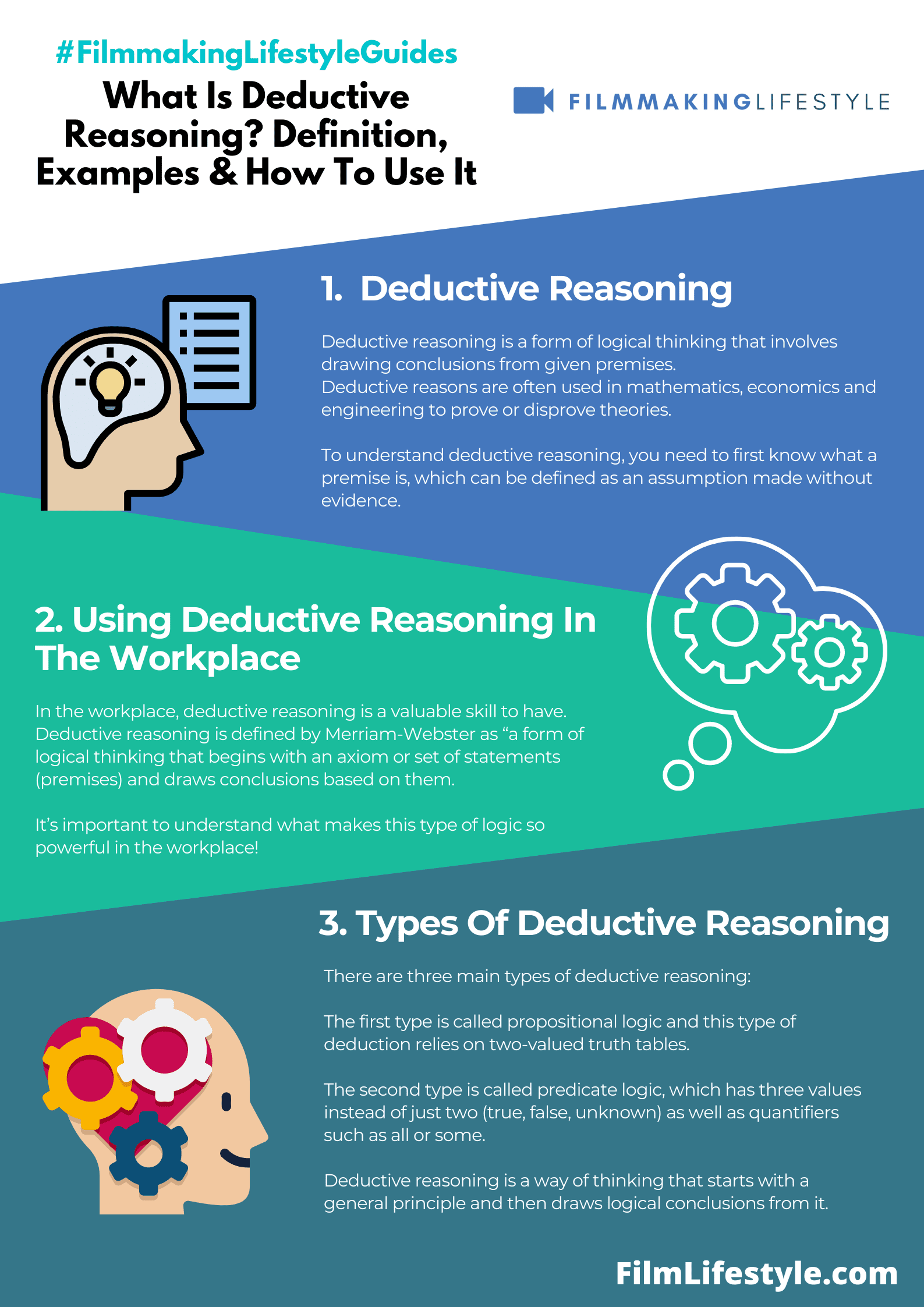Web deductive reasoning is a logical process of reaching a specific conclusion based on general principles or premises. In deductive reasoning, you use general ideas or premises to come to a specific conclusion. It’s often contrasted with inductive reasoning, where you start with specific observations and form general conclusions. Web deductive reasoning is a psychological process that people use to make decisions and solve problems. It’s often contrasted with inductive reasoning, where you start with specific observations and form general conclusions.
Max keeps losing at tennis. This phrase is commonly used in academic and scientific contexts. Which sentence is the clearest example of deductive reasoning? It involves using available information, facts, or evidence to make a logical inference.
Web the clearest example of deductive reasoning is option a. A logical inference is a connection from a first statement (a “premise”) to a second statement (“the conclusion”) for which the rules of logic show that if the first statement is true, the second statement should be true. Therefore, ladybugs have six legs.
B) it was sunny on the 1st of july the year before last. When it comes to using deductive reasoning in a sentence, it is important to employ a mix of simple and complex sentences. Thus, 2 b = 2 b = 1 2 In other words, a person decides that something is true because it is based on some other general notion that is true as well. In deductive reasoning, you'll likely make an argument from a general statement ( hypothesis) and use different premises to reach a conclusion.
Strictly speaking, and in simplest terms, there are two arguments, and these two or more statements lead to another statement. First, subtract b from two: Web deductive reasoning, or deduction, relies on general principles to derive specific conclusions.
Deductive Reasoning Can Be Defined As A Type Of Logical Reasoning That Typically Involves Drawing Conclusions From One Or More Premises (Factual Statements) That Are Assumed To Be True Generally.
Web deductive reasoning, or deduction, relies on general principles to derive specific conclusions. Web there are approximately seven types of reasoning: It is the process of reaching conclusions using premises that are assumed to be true. Deductive reasoning is also called deductive logic.
A Logical Inference Is A Connection From A First Statement (A “Premise”) To A Second Statement (“The Conclusion”) For Which The Rules Of Logic Show That If The First Statement Is True, The Second Statement Should Be True.
Web revised on june 22, 2023. B) it was sunny on the 1st of july the year before last. Specifically, deductions are inferences which. Therefore, ahmed is 18 or older option (b) is correct.
If We Accept The Truth Of The General Principle That All Dogs Are Mammals (1) And The Premise That Rex Is A Dog (2), We Are Logically Compelled.
When it comes to using deductive reasoning in a sentence, it is important to employ a mix of simple and complex sentences. Web deductive reasoning is a logical approach where you progress from general ideas to specific conclusions. The clearest example of deductive reasoning is option d. Web our analysis has revealed that scenario 3, with its unambiguous premises and logical conclusion, emerges as the clearest example of deductive reasoning.
Web The Clearest Example Of Deductive Reasoning Adults Are 18 Or Older.
Therefore, rex is a mammal. Web the clearest example of deductive reasoning is option a. Deductive reasoning refers to when a conclusion is reached based on a general premise. This phrase is commonly used in academic and scientific contexts.
It is also called a top to down thinking or taking general statements to specific one sand then to a conclusion. In other words, a person decides that something is true because it is based on some other general notion that is true as well. Web deductive reasoning is defined as a way of building an argument from general premises to a conclusion. In deductive reasoning, you'll likely make an argument from a general statement ( hypothesis) and use different premises to reach a conclusion. Rodney is late every day.



